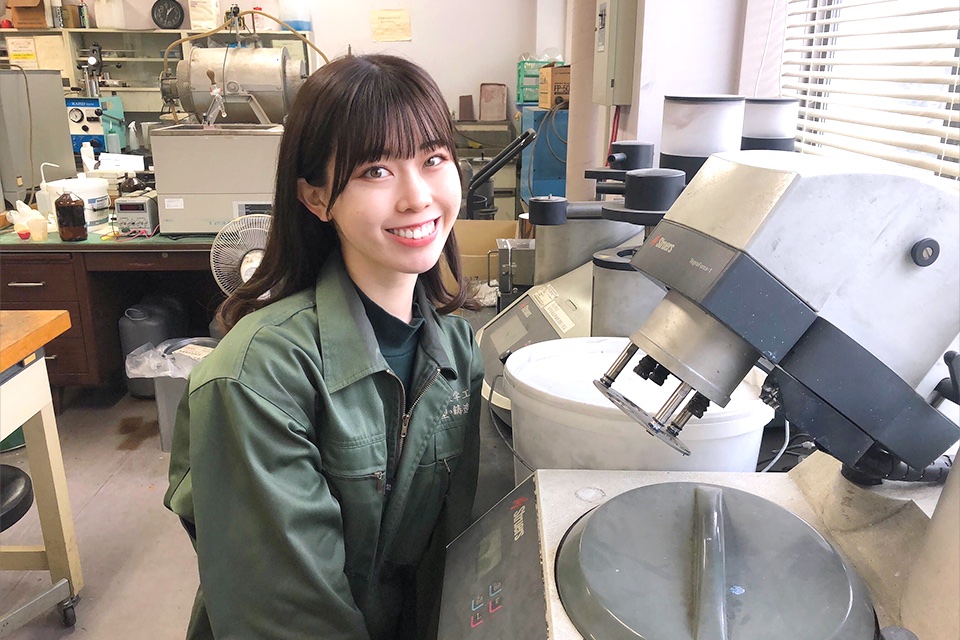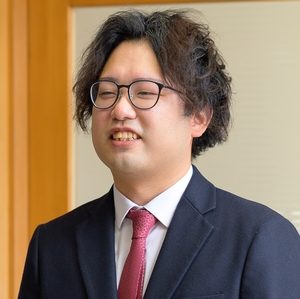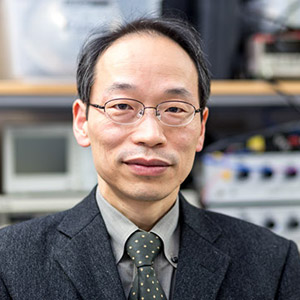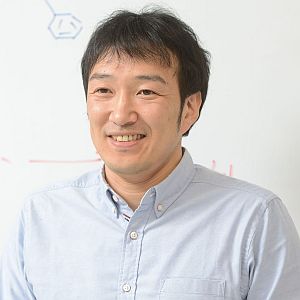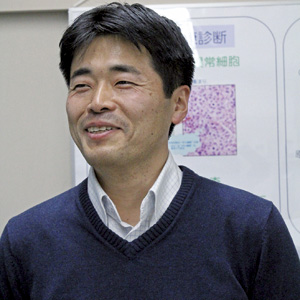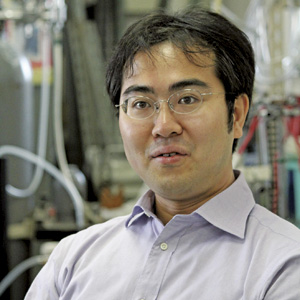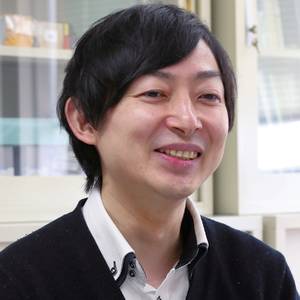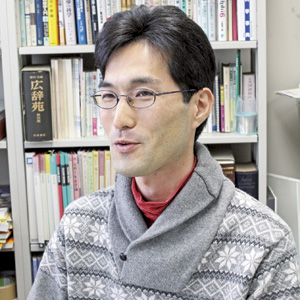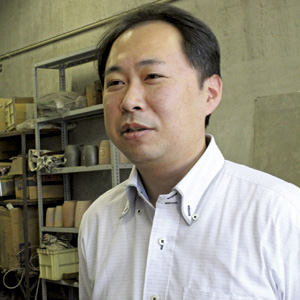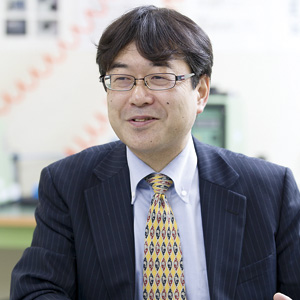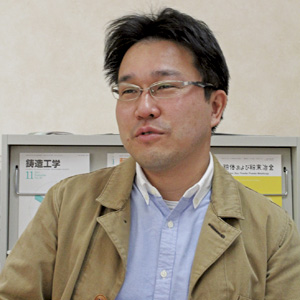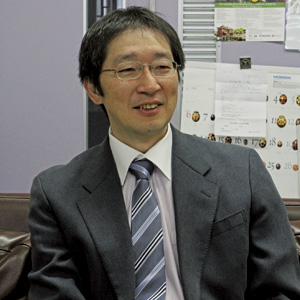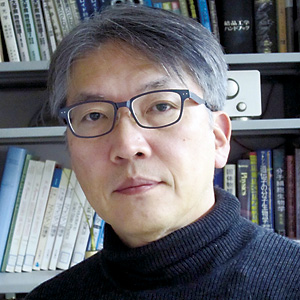Changing the future through innovation in “materials”
This is what is great about this course!
All tangible things in the world are made of some kind of “material. In the Course of Materials Science, faculty members specializing in new “materials” and related technologies necessary for realizing a sustainable society are in charge of education and research, ranging from traditional iron and aluminum casting technologies that have been handed down from the Nanbu Ironware to the latest biomaterials such as titanium, nano-magnetic materials, and electronic materials that make full use of spintronics. The faculty members specializing in new “materials” and related technologies needed to realize a sustainable society are in charge of education and research, and their achievements have been highly evaluated.
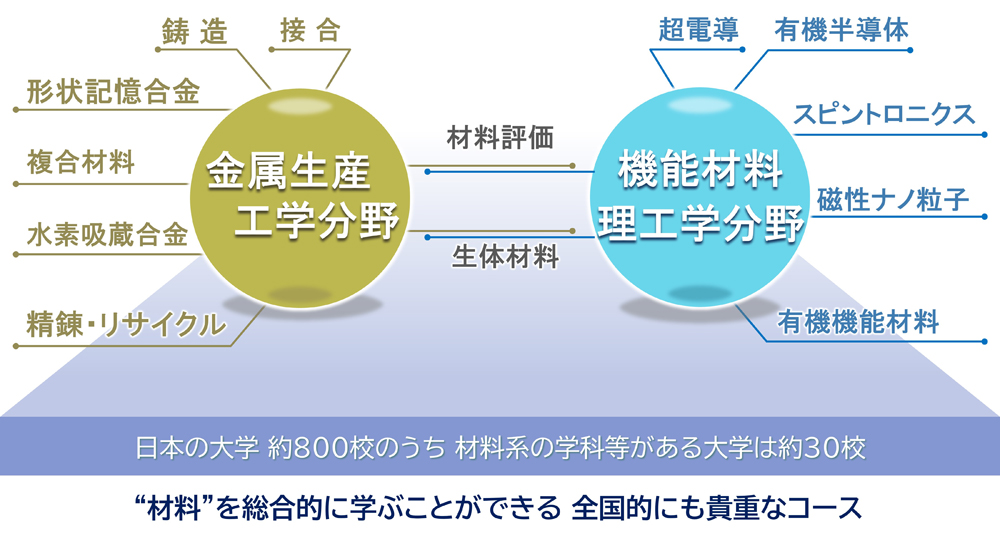
What is the course of study (and how is it applied to society)?
“Materials” are the keystone of industry and bring innovation to society in a wide range of fields such as machinery, infrastructure facilities, electronic devices, and medicine. Materials” can be divided into ‘structural materials,’ which are used to create shapes, and ‘functional materials,’ which are used for their physical or chemical characteristics. The course is designed for students who are interested in structural materials. In this course, a wide range of research is conducted in both the “Metal Production Engineering” field, which specializes in structural materials, and the “Functional Materials Culinary Engineering” field, which specializes in functional materials, to solve various problems from the viewpoint of “materials. The course trains students to become specialists who can solve various problems from the viewpoint of “materials.



What can I learn and how can I grow?
By following a curriculum that systematically arranges subjects from basics to applications, students are trained to have a broad knowledge of “materials” and the ability to apply it. After being assigned to a laboratory, students can further specialize in new technologies necessary for a sustainable society, such as hydrogen energy technology and recycling, and new materials such as nanomagnetic materials and titanium, which will lead to the development of innovative medical technology. We will also focus on developing problem-solving skills and semiconductor-related expertise through the use of AI.

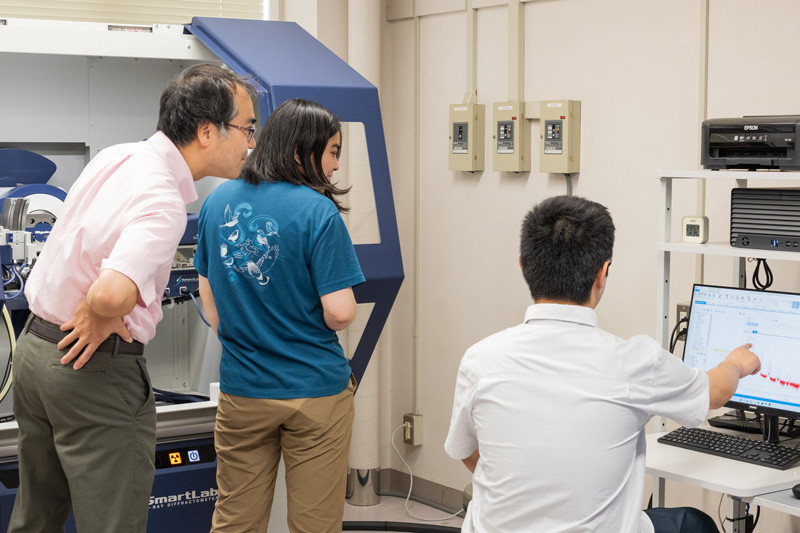
What are the expected career paths after graduation?
Personnel who can evaluate and research and develop “materials” are needed in all occupations and fields. However, there are only a few universities that offer a comprehensive course of study in “materials,” and this course is one of the most valuable in the country. Graduates are expected to be active in a wide range of fields, including the steel industry and other materials fields, automobiles, machinery, infrastructure facilities, electrical and electronic devices, and medicine. Nearly half of the graduates go on to graduate school, where they are expected to acquire further specialized knowledge and work in more advanced occupations.





